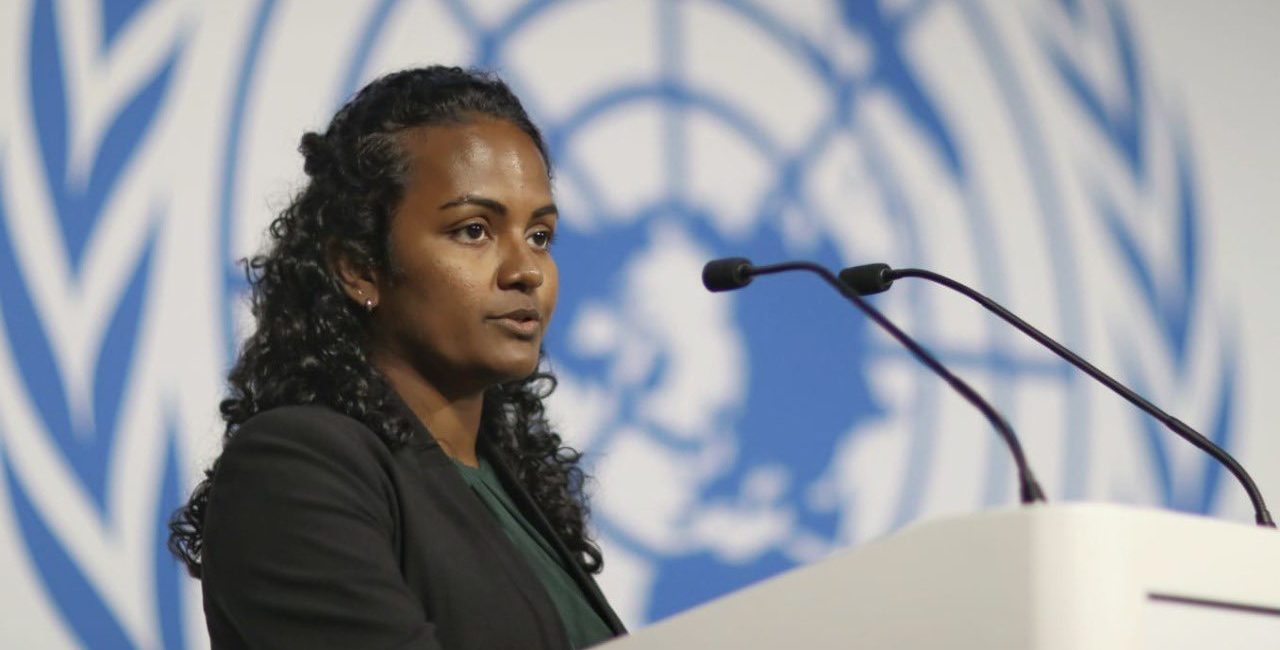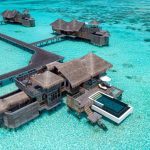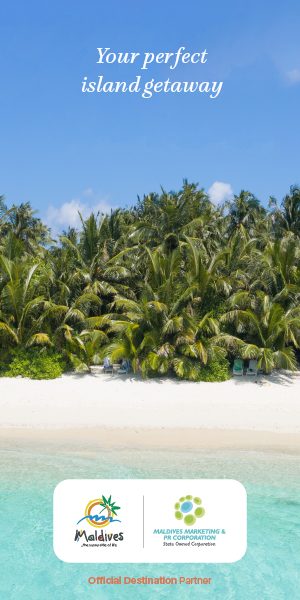Male’, Maldives, 5th July 2022 – The Maldives cemented its role as a global leader in ocean protection and stewardship by sharing nationwide successes from the Noo Raajje program at the 2022 United Nations Ocean Conference in Lisbon, Portugal. The conference, co-hosted by the governments of Kenya and Portugal, was held from 27 June to 1 July 2022.
A delegation from the Maldives, led by the Maldives Minister of Environment, Climate Change, and Technology Aminath Shauna, attended the conference to encourage other leaders to take action for the ocean. Her statement reaffirmed President Ibrahim Solih’s commitment to protecting at least 20% of the ocean at the United Nations General Assembly in 2019, a declaration which acted as the basis for the Noo Raajje program, a partnership between the Government of the Maldives and the Blue Prosperity Coalition to protect the ocean and its resources.
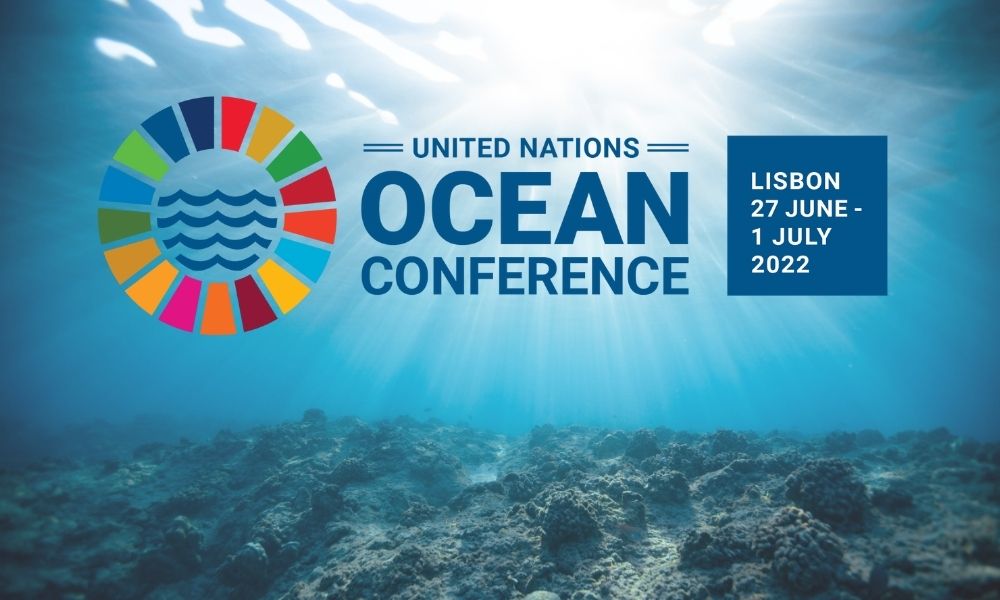
During her statement, Minister Shauna stated that urgent and effective measures, including the adoption of a post-2020 Global Biodiversity Framework, are necessary to protect the ocean. “We support the global initiative to protect 30 percent of the world’s oceans and are working to protect at least 20 percent of our economic zone. Yet, no matter how ambitious our actions are, we cannot do it alone. We need sustainable fisheries to be the norm, not the outlier. We need development that incorporates ocean protection and climate resilience.”
Furthermore, the Minister also recognized that protection extends beyond just environmental conservation. The life of every Maldivian is intricately bound to the ocean, especially as the Maldives’ rich ocean biodiversity powers the economy, contributing to over two-thirds of employment and 60% of the GDP. The oceans are an asset to the Maldives, attracting visitors worldwide and sustains the Maldives’ tourism industry. The Minister acknowledged the Noo Raajje program’s efforts to plan for the future of the ocean, “We hope to protect at least 20% and are developing a Marine Spatial Plan with scientific knowledge. Protection is not just about environmental protection, it is the way we shape our economic future in a sustainable manner. It’s how we create jobs and income for our people.”
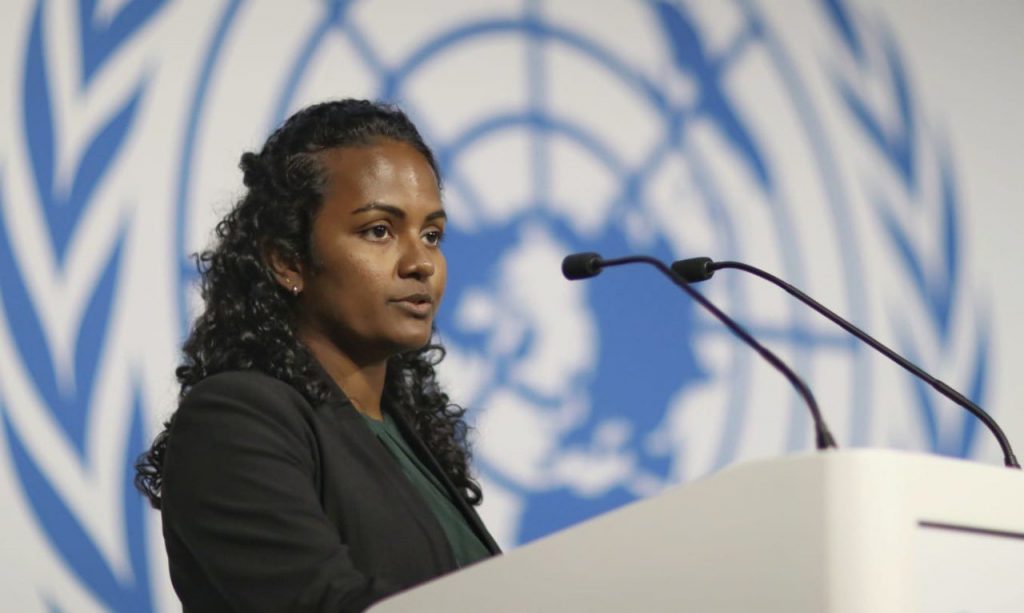
The Minister’s statement addressed how human activities are causing ocean acidification and affecting the migratory patterns of fish, putting our primary food source at risk. The Minister called for increased global ambition and action to preserve the health and wealth of the ocean, noting the consequences of climate change on the Maldives’ coral reefs, and the devastation caused to the Maldives’ marine ecosystem by plastic pollution.
She emphasised Maldivians do not wish to stand idly while the oceans are dying and stressed several efforts the nation uses for ocean-friendly fishing, including traditional pole-and-line fishing methods with zero bycatches and enacting legislation to combat illegal, unreported, and unregulated fishing, which at present is a severe threat to sustainable small-scale fisheries and coastal fishing communities like the Maldives. She strongly called upon the international community to show their resolve to end IUU fishing.
Moreover, the Minister stated that despite these, the Maldives is subject to high import tariffs from some of the main markets on our fish exports and stressed that sustainability should be economically viable, and for that, we need global support.
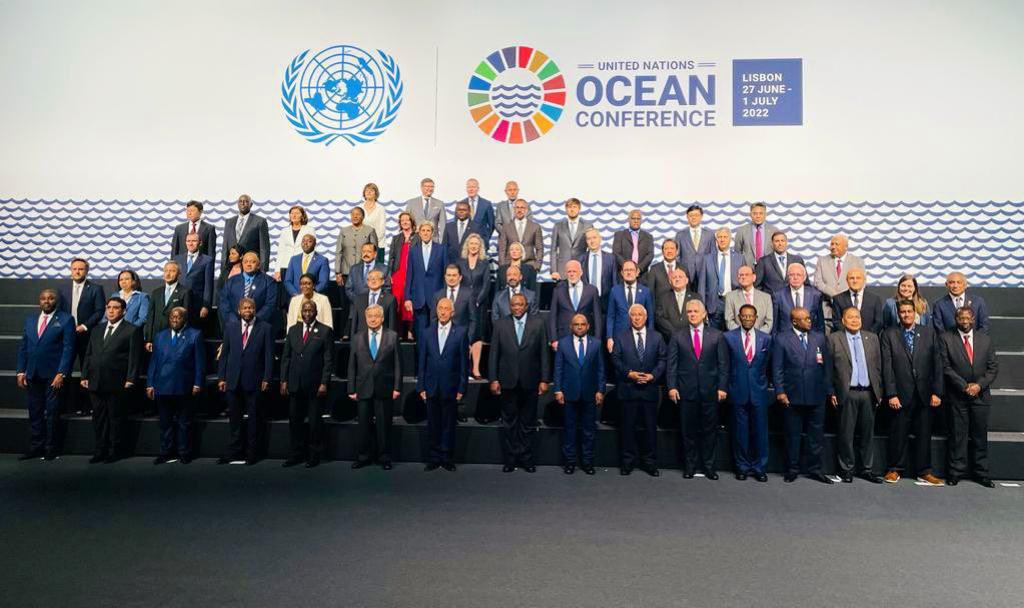
Minister Shauna also noted President Solih’s decision to ban the import, production, and sale of 13 single-use plastics, aiming to phase out their use by the end of 2030. She also highlighted that 79 marine areas have been designated as protected sites, including 14 per cent of the coral reefs.
Despite these efforts, she added that one country cannot protect and preserve the oceans alone. She called for unified global action in which sustainable fisheries are the norm and countries adopt development practices that include ocean protection and climate resilience. She ended her statement by urging everyone to save our coral reefs by limiting the global temperature rise to 1.5 degrees.

